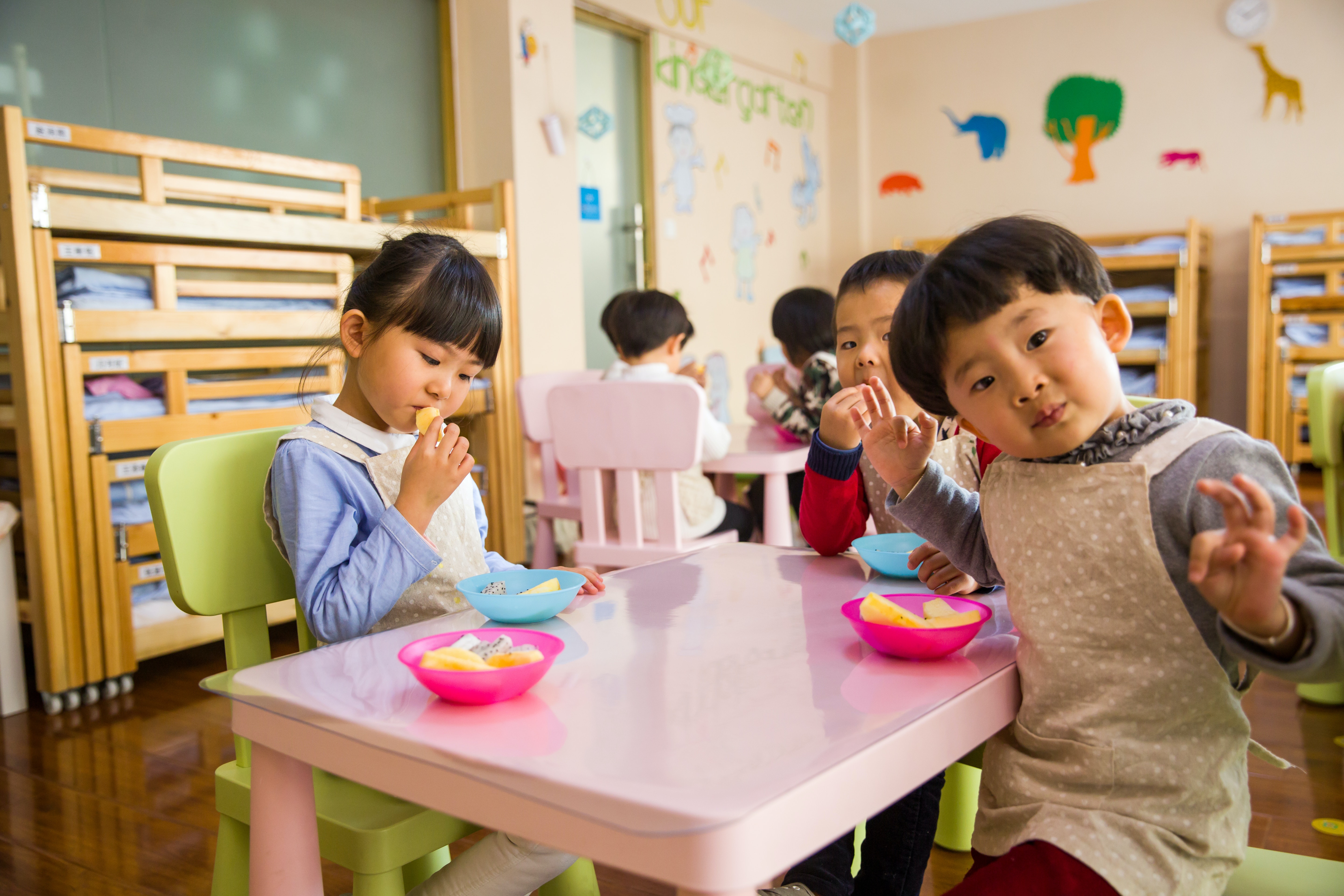
There are many reasons why it's critical to keep a childcare centre as clean as possible. First of all, it aids in the prevention of germs and illnesses, helping both caretakers and children to remain healthy. Second, a clean facility makes a positive impression on parents, allowing them to have confidence in your abilities to care for their children. As a result, you'll be able to establish a more positive reputation in the childcare sector.
Here are some simple cleaning guidelines for childcare centres to help you keep your childcare facility clean, secure and enjoyable for young children.
9 cleaning guidelines for childcare centres:
1. Encourage regular handwashing
In order to avoid the transmission of germs and illnesses, children must be taught to wash their hands regularly. It's important that both teachers and students wash their hands after going to the bathroom; before and after eating; after sneezing, coughing or blowing a runny nose; and before and after playing games or using shared equipment. Using a sanitiser after hand washing can also help to prevent disease transmission.
2. Vacuum and mop every day
When it comes to bacteria, illnesses and infections, the floor is frequently the worst culprit. This is due to the fact that young children spend practically all of their time playing on the ground, so vacuuming and mopping should be done every day. This aids in the removal of dirt and dust that may irritate young children, especially those with allergies such as asthma. Other benefits of regular vacuuming include improved indoor air quality, the prevention of mould growth and the elimination of infestations such as dust mites.
3. Keep wet wipes in every room
You never know when there will be a spill or mess that needs to be cleaned up, so always be prepared. It might be a spilled drink, ink, paint, bodily fluids or even a food splatter! Wipes can also be useful for cleaning children's hands after an activity - this is easier and much quicker than taking children to the bathroom.
4. Clean toys regularly
Plastic toys are required to be washed and sterilised at least once a day in many child care centres. As toys are one of the most common ways for germs to spread, if a youngster puts a toy in his or her mouth, it should be put to one side until it can be thoroughly cleaned and sanitised. Stuffed toys are a bit harder to clean, but aim to deep-freeze them once a week in a plastic bag. Doing this for about 4-5 hours will kill off any allergens, dust mites and germs. Not only does cleaning all toys prevent the transmission of germs and allergies, but it will lead to fewer sick days for your children and staff.
5. Choose safe cleaning products
When it comes to choosing cleaning products, always be cautious. Chemical exposure is extremely dangerous for young children, so examine all labels to prevent exposing them to harmful compounds. Cleaning should be done with ordinary soap and water, and disinfection or sanitising should be done using an authorised product.
6. Ensure the correct preparation of food
Make sure any surfaces or appliances used to prepare and store food are clean before use. All food needs to be stored at the right temperature and any spoiled produce should be thrown out immediately.
It's important to discourage children from sharing meals and drinks too. Not only does this spread germs, but a child with a nut allergy, for example, could inadvertently eat something they shouldn't. Finally, make sure no food preparation takes place in close proximity to diaper changing areas.
7. Have a cleaning schedule at the childcare centre
In order to prevent or reduce the transmission of bacteria, it is critical to maintain a sanitary environment. Your childcare should really have a cleaning schedule that specifies what has to be cleaned, how often it should be cleaned and who is responsible for it. Storing everything on a cleaning cart can make finding products simpler and faster.
It's important that staff and cleaners have access to adequate cleaning detergents, microfibre cloths and mopping systems, but it's essential that all products are kept out of reach of children. If infants will be utilising toys and surfaces that have been cleaned with chemicals in the near future, caution should also be exercised over the products used. Detergents that contain sulphates, for example, can trigger asthma attacks while bleach and sodium peroxide can irritate and burn the skin and eyes.
8. Clean nappy-changing areas
The use of diluted bleach solutions to clean nappy changing areas is strongly advised. Preventing the transmission of germs also requires basic cleanliness from staff, such as hand washing and disposing of used nappies safely.
9. Staff who are unwell should go home
Preventing sick staff from coming into the childcare may appear harsh, but they pose a health risk to others, even if they don't come into close contact with other youngsters during the day. If a member of staff shows symptoms of an illness that could easily spread, such as sickness and diarrhoea, they should go home as soon as possible - the same goes for children too.
The importance of following cleaning guidelines for childcare centres
Since children and their caregivers are often in confined spaces together, infectious illnesses can easily spread. Childcare centres are never going to be germ-free, but as seen above, there are guidelines you can follow to minimise and prevent staff and children from falling ill.
Contact Rubbermaid Commercial Products today
Rubbermaid Commercial Products has been providing reliable and creative cleaning, hygiene and waste management solutions to businesses of all sizes since 1968. Our solutions are engineered to last, saving you cash, keeping your employees from harm and decreasing the waste generated by alternative products.
So, if you have an enquiry, make sure to contact us today. You can also get a free sample of the Hygen Disposable Microfibre Cloth here.